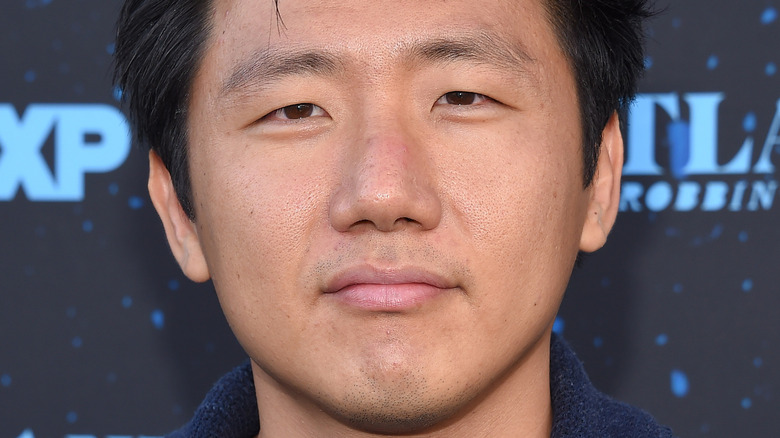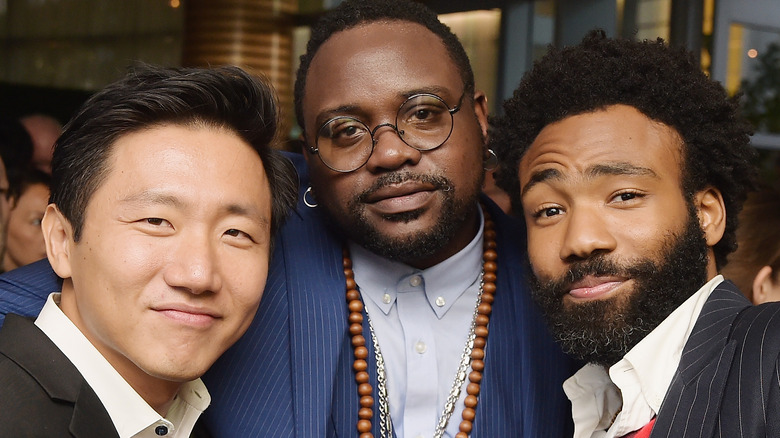Atlanta's Director Wanted The Series Finale To Feel Like Any Other Episode
After a four year hiatus, "Atlanta" returned in 2022 with back-to-back seasons. It's largely difficult to describe what "Atlanta" is beyond the initial premise of Earn (Donald Glover) trying to make his life right by capitalizing on the success of his cousin Paper Boi (Brian Tyree Henry), a Southern rapper on the precipice of greatness. Described as "'Twin Peaks' with rappers" (via Vulture), each episode presents its own unique viewpoint that challenges what viewers know about America, popular and music culture, and at times, the nature of the universe. The brainchild of Glover, whose musical moniker of Childish Gambino has made him a Billboard Hot 100 darling, the series first debuted in 2016 on FX to critical acclaim. The series has won 6 Emmys to date, amassing over 20 nominations.
What has made the series so successful? Wired suggests that the show's obsession with reinventing itself episode after episode, season after season, has made it a unique offering that simply can't be replicated. Season 3 made the stark choice to take the gang to Europe, showing that the once-strugglers were now accomplished and revered in their fields. The decision to take the Atlanta out of "Atlanta" didn't come without criticism. Season 4, however, goes back to basics, giving audiences a true reminder of what "Atlanta" has always been. For director Hiro Murai, this was particularly important to nail in the final season, as the closing episode had to replicate the vibe of what had previously come.
Hiro Murai acknowledges how difficult it can be to wrap up a series
Taking a look at some of the most controversial and poorly received finales of all time, it's easy to see that the shows in question abandon the formula that made them so successful. In the case of "Atlanta," executive producer and director Hiro Murai realized that the finale should be in the same vein of previous episodes, meaning it should be more of the same on purpose.
Speaking with Variety, the director acknowledged the value in not wrapping up an entire series in one episode, and how it's important for the audience to reach the end organically. "Wrapping up a whole series in a single episode is always hard, always polarizing," Murai said. "We liked the idea of giving the audience a multi-episode finale; we've been wrapping up the whole show for the past three or four episodes. For the finale, the idea is that it's just a regular 'Atlanta' episode," the director said. Several shows have delivered multi-episode finales which aired back-to-back. "Atlanta," instead, has made the conscious effort to wrap things up in a methodical manner.
The final episode, "It Was All A Dream," clocked in at under 36 minutes, just as long as a typical "Atlanta" outing. And per positive reviews from the likes of The New York Times and Rolling Stone, the finale felt as if it was an organic end to the series because it succeeded first and foremost as a classic "Atlanta" episode, filled with symbolism, mystery, and laugh-out-loud moments. "There's obviously an existential dread undercurrent through it, like the whole series, but beat-by-beat, it feels like the kind of hijinks you'd see in any episode of the show," Murai said.

